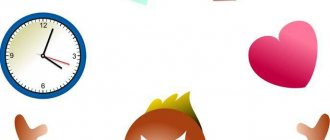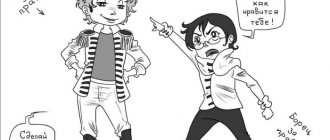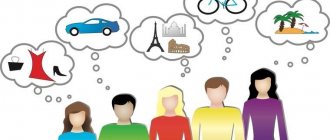Human resources are his potential, strength. In psychology, this includes abilities, knowledge, abilities, skills, beliefs, values, states, intelligence, positive thinking, high self-esteem, mental and physical health, and much more. In general, everything that supports a person inside and out helps him live productively and effectively. The more of these elements a person has, the more effective his relationships with the world and with himself are. Let us examine in more detail what human resources are and what they are.
Health (physical and psychological)
A healthy human body, which receives the required amount of rest and food, and also expends its internal sexuality and energy in the required amount - these are the internal resources of a person, on which most of the success in life depends.
The psychological component (mental processes and its functions) are also regarded as fundamental resources. The internal components of the personality psyche are erudition and erudition, imaginative and abstract thinking, intelligence, the ability to use information, the ability to analyze and synthesize, attention, quick switching from one object to another, will and imagination.
Components of a person’s personal resources
In psychology there is no unified classification of sources of strength. Let us summarize these elements in the form of a table of internal and external human resources:
| Domestic | External |
| Time | Information |
| Health | Connections |
| Intelligence | Money |
| Emotions | Power |
Sometimes hidden psychological resources are also identified. These include energy, perception, awareness, intention.
Now let’s look at the most important personal (internal) resources of a person in more detail. Advancement up the career ladder, success in your personal life and in relationships with friends, the nature of your relationships with society, and life satisfaction depend on them.
Health and physical strength
Psychological comfort depends on physical comfort. It's hard to think about anything else if you're in pain or if your life is in danger. In addition, strong immunity, good health and a physically developed body help a person to be active and mobile.
For example, we all know how a common cold can unsettle you for weeks and disrupt all plans. Or this example of the importance of health. Drivers and others who sit a lot know how important it is to keep their back healthy. Otherwise, you may find yourself bedridden and unable to work.
In addition to physical health, psychological well-being is also important. Therefore, it is necessary to get enough sleep, eat right, avoid stress, and solve emerging psychological problems in a timely manner.
Important! Physical health, well-being and a strong body are the key to everything in our lives.
Intelligence
Intelligence is translated from Latin as “perception”, “understanding”, “understanding”, “concept”, “reason”. This is the ability to cognition, comprehension and problem solving. It is also the ability to organize activities in such a way that all the information contained in the brain will be used with maximum benefit and efficiency.
Intelligence is a more complex structure than people usually imagine. It is associated with such cognitive abilities as:
- attention;
- imagination;
- thinking;
- performance;
- perception;
- sensation;
- memory.
In addition, it is important to know that there are 9 types of intelligence:
- natural (naturalistic);
- musical;
- logical-mathematical;
- existential (philosophical);
- kinesthetic (bodily);
- interpersonal (social);
- spatial (figurative);
- linguistic (verbal);
- personal (internal).
The problem is that many people focus on only one resource - logical-mathematical intelligence (IQ). And because of this, they do not notice their true potential, do not use and ignore their inner strengths.
Positive thinking
It is important not to confuse this with blind optimism. With positive thinking, a person does not convince himself that everything is fine and does not ignore difficulties. He sees them and acknowledges them, but at the same time he is confident that he can cope with any setbacks. He is confident in himself, knows his strengths and weaknesses, and knows how to use them wisely. Such a person perceives difficulties as opportunities. Positive thinking encourages a person to pay attention to personal resources, use them, replenish and replenish them.
Self-esteem
Only with adequately high self-esteem can you achieve success in life. Low or high self-esteem leads to a person’s inadequate assessment of reality.
For example, with low self-esteem, he blames only himself for all failures and goes into self-flagellation. And with inflated self-esteem, he shifts responsibility to other people. In the first case, a person underestimates his abilities and gives in to difficulties, does not even try to express himself or try something. In the second case, a person overestimates his abilities and capabilities - because of this, he often ends up losing.
Note! With low self-esteem, a person criticizes himself as a person. With adequate self-esteem, a person criticizes his individual actions, thoughts, actions, but at the same time he maintains faith in himself and a sense of self-worth.
Skills
A skill is a skill that has been brought to automaticity. In psychology, it is customary to distinguish four types of skills: motor, mental, sensory and behavioral skills. It is worth mentioning separately about professional skills; they are based on the main four types. With the help of all these skills, a person becomes useful to society, enters it, establishes connections and takes his place in any system of relations, be it the work sphere or personal relationships.
Self-control
Self-control is the ability to remain calm and sober, to make informed decisions in difficult life situations. Without self-control, it is impossible to build harmonious relationships with others, build a career, learn something and move through life. Loss of self-control is fraught with conflicts and rash actions with disastrous consequences. A person with poor self-control can cause harm to himself and others.
Emotions and positive thinking
Various emotional states are inexhaustible resources. Internal moods can set the rhythm of both the physical body and the psyche as a whole. In this case, the resources are both a feeling of favorable emotions, such as joy, happiness, fun, peace, and a feeling of grief, sadness, anger, rage. But each emotion must have a creative function. For example, rage and anger in defending one’s rights can set personal boundaries and will not allow the opponent to violate them. But rage aimed at destroying (moral or psychological) another person already has a destructive function.
A creative perspective will allow you to develop the ability for positive thinking, which very often becomes an assistant in resolving many problems and troubles in life.
What is a "resource"
To be in a resource means to feel the joy of being, to feel healthy, prosperous, and confident in your abilities. The person is full of energy, cheerful and cheerful. Everything works out, everything goes well, the efforts pay off, you enjoy any activity and are satisfied with its result. The head is clear, optimal solutions are found quickly and implemented without problems. Rare errors are not fatal and can be easily corrected. Study is successful, work is effective.
In a non-resource state, everything is the other way around : life is not enjoyable, you feel disgusting, there is no mood, you are overwhelmed by fatigue, work “slips,” your head “doesn’t work,” mistakes multiply, everything seems meaningless. Dissatisfaction with oneself and others increases: there are only stupid people and pests around.
A resource is energy, physical and mental strength, “fuel” for our “engine”
Of course, a person is not a robot or a mechanism that can be wound up. Even being in resource, he gets tired, sad, irritated... But the ability to recharge, proper rest and sufficient night sleep successfully restore his strength.
Character
Character refers to not only those traits that are highly moral and attractive to society as a whole, but also those that help an individual move toward achieving certain results. For example, anger and irritability are not very welcome in society, but thanks to them a person will always be able to stand up for himself in a difficult situation. That is why such traits are also resources. The internal resources of the individual, consisting of character, of course, must be close to the ideals of society. It is worth remembering that all character traits must manifest themselves at the right time and in the right place, in which case they will only benefit the person himself and those around him.
Personal resources are all those vital supports that are at a person’s disposal and allow him to provide for his basic needs:
- survival;
- physical comfort;
- safety;
- involvement in society;
- respect from society;
- self-realization in society.
Resources are divided into social and personal, in other words, external and internal. External resources are material values, social statuses (roles) and social connections that provide support for society and help a person from the outside. Internal resources are a person’s mental personal potential, character and skills that help from the inside. However, the division into external and internal resources is quite arbitrary. Those and other resources are closely related, and with the loss of external resources, the loss of internal resources gradually occurs. Reliable external resources ensure the safety of internal resources, but only if these internal resources already exist. Sometimes a person receives external resources without yet having internal ones, and this is like only external decoration that can crumble at any moment. This is the tragedy, for example, of some children from very wealthy families who, without having yet developed their own personality, received many social supports in advance. In this case, falling into the trap of painful dependence, apathy or depression is much more likely than in the case of that young person who, without sufficient social resources, is forced to earn them himself and in the process automatically forms internal resources, since the latter is like the muscles of the personality, growing as a result of stress. However, if such a young person had no external resources at all, he did not receive any initial support from society, it is very doubtful that he will be able to survive. That is, a minimum of initial external resources is required.
The greater the already acquired internal resources, the higher a person’s ability to restore external resources in the event of loss, the greater his resistance to the environment, the stronger his subjectivity, will, ego integration, locus of control, self-awareness and self-efficacy, stress resistance while maintaining the integrity of the individual. It is important to understand that the strongest internal resources do not replace external ones, but they allow you to exist for some time without external resources, restore them from scratch, build them up in any situation and ensure super-adaptation, resisting the environment alone. This is exactly what a fantasy action hero looks like: he goes through any of the most terrible trials and emerges victorious. This metaphor is very accurate. Powerful internal resources are truly like a motor instead of a heart, an unbending will, charisma and a large supply of energy. However, one must understand very well that any internal resources - like the supply of oxygen in the lungs, like the supply of glycogen in the liver - are provided autonomously only for a while, until a person finds new sources of nutrition - external resources. A person cannot exist on internal resources alone for a long time; he must find a suitable environment and enter into mutual exchange with it, provide with its help all his needs, from the lowest to the highest, otherwise after some time the internal potential will be exhausted. That is why, ideally, a person should constantly take care of maintaining and increasing these and other resources, and the stronger his internal resources, the easier it is to increase external ones. And the more he himself increased external resources, the stronger he became inside.
Internal resources are a reserve of autonomy. This is how good, confident and holistic a person can feel without any support from society and even with its opposition, without resorting to defensive illusions and denial, that is, clearly aware of the real state of affairs, but withstanding stress and preserving oneself. A person cannot and should not be infinitely autonomous; a person is a social being and the essence of his life is in interaction with society, in exchange with others, in involvement in people’s lives. However, a person needs a reserve of autonomy in order to preserve himself during conflicts, to protect himself from attacks, to assert his subjectivity, his will, his selfhood and his Self, not to become a weak-willed object in the hands of others, an inanimate resource, a slave and the thing of everyone who is stronger , do not become what we in this LJ call the word “fodder”. Any person can be turned into fodder under certain circumstances, but the higher the reserve of his autonomy, the stronger his subjectivity, that is, the integrated part of his personality, the so-called core of personality, the core of personality, “hardy”, authenticity, selfhood, the more difficult it is to destroy him, the greater his resistance and strength. A person with a very strong core can be considered invincible, since it will take too much effort to subjugate his will. It is much easier to kill his body than his personality. This is an ideal worth striving for. In any case, it is worth moving as far as possible from the situation of personal weakness, lack of will, dependence and disintegration. In a weak state, a person cannot find internal support in himself, is not able to rely on himself, he has no autonomy, he is unable to do without the support of loved ones and for the sake of this support he is ready to abandon himself, he suffers from loneliness and seeks to escape from that the emptiness that reveals itself every time a problem arises or anxiety simply arises.
To understand the problem of resources, one must realize how dynamic this process is, how much it is in motion. You cannot accumulate resources once and gain power forever. Resources require constant interaction with the environment, constant development and renewal. By giving away external resources and not acquiring others in return, a person weakens his external position, which cannot but affect his autonomy, no matter how strong he once was. A person is constantly changing, “living” - that is, he is in motion and change. And if its internal and external resources do not develop, they degrade. Nothing living can stand still. When I am asked the question “Why did a strong woman turn into a weak woman in a relationship, because she had resources,” I want to answer rudely, but honestly, “they were there, but they left.” Resources can remain only as long as a person is engaged in these resources. As soon as he becomes engrossed in something else, such as a relationship, his resources are either transferred to the one to whom he devotes himself, or they simply gradually fall apart and disappear. The main thing is that the connection between the integrated parts of the ego is broken (if this connection existed, that is, the person was really strong and did not seem), it is broken if a person stops developing his subjectivity, his autonomy, his ego integration, and begins to engage in something exactly the opposite: relaxing, passively surrendering to something, getting involved in something that is not oneself, running away from oneself into ecstatic experiences, in the hope of transcendence or just a buzz. Any positive transcendence requires the return of the center (assemblage point) inside oneself with some kind of spoil, self-enrichment, and not loss of oneself. Transcendence without returning to oneself (and love often becomes like this) is like investing all your money in some business that will not bring profit. This is the dissolution of oneself, the victim.
Equally harmful is the misunderstanding of autonomy and independence. Trying to maintain “borders,” some people begin to treat the world around them with hostility and wariness, do not make connections, and stop the flow of investments, which for the purpose of self-development must be carried out continuously, otherwise development will stop. We must understand that there are no sources of energy within a person, other than the small potential that a person has managed to accumulate and which will soon run out. All sources of energy are located outside, in the surrounding world, in society and nature (if we perceive it personified, that is, also socially). You can interact not with specific individuals, but with a cultural social layer, reading books and comprehending art, you can lead a fairly secluded lifestyle, engaging in creativity addressed to descendants, but this is also social interaction, and sometimes very intense, more intense than superficial parties , but outside society there are no sources of energy. By treating the world around us with hostility or without interest, a person very quickly exhausts himself. Love, passion, delight, curiosity, inspiration, admiration, amazement, interest, sympathy, attraction, craving, search, desire, desire, thirst - all these are ways to connect to new sources of energy. Without attraction to something, there will be no connection, the person will remain in his own capsule, will suffocate, weaken, switch to a regime of greater and greater economy, as a result of which the world through the glass of the foggy capsule will seem more and more gloomy and hostile , or just plain ugly and boring. Thus, depression can take hold of a person and destroy him completely, causing him to want to die. Either he will not close himself off completely, will sometimes crawl out of the capsule and feed himself a little with something, which, however, is not enough to become stronger, bolder and decide to make more active investments.
But love, passion and delight alone are not enough to enrich yourself with energy. This is enough to connect, but it may not be enough to share your energy and get something in return. For mutual exchange, a system is needed that balances the centripetal force of energy supply to the source, so that energy from the source flows to the center (centrifugal force). This system is intrapersonal integration, those same internal resources. The stronger the center of personality, the stronger the centripetal force while increasing the centrifugal force. From the point of view of most researchers, ego integration includes adequate and stable self-esteem (not overestimated, not underestimated, not jumpy), locus of control, that is, a sense of personal responsibility and the power of influence on the circumstances of one’s life (without magical illusions, adequate), and trust in life, that is, the willingness to accept its events as lessons for improvement, to feel the love of life for oneself (the same core that is believed to be based on the unconditional love of parents, but in fact can be formed at any age and lost too , the very core that faith in God gives to some, and even faith does not give to some, and some acquire it even without faith in God).
The triad – “self-esteem, locus of control, trust (or challenge)” – is not formed on its own, but only in the process of acquiring external resources, in the process of social interaction, work, creativity, education, winning the respect and love of people. To receive something from the world, you need to give a lot to it, but giving in itself does not guarantee receiving. Without giving you will not receive anything, but by giving there is no guarantee of receiving, in this matter there cannot be simple dogmas and instructions, you need to be generous and careful at the same time (this is possible with simultaneous love for the world and love for yourself), and without these two qualities it is impossible . Those who call for the abandonment of sympathy and trust in the world can do a very disservice to those who believe them. Love for the world and openness to the world is the only opportunity to acquire resources: internal and external, and there are no other ways. The system of filters and fuses can be created individually, taking into account experience and personality characteristics, be more stringent or less, but it is very important not to throw out the baby with the bathwater, not to play it safe until all life support channels are completely turned off, and not to cut off all access to vital forces.
Source
Skills, abilities, experience
A skill is something that a person has learned to do, and a skill is the automation of a skill. Thanks to this, a person can benefit the people around him. In this way, the internal resource that lies in skill is manifested.
Experience, processed and experienced, is an important human resource. Everything that a person was able to realize and feel is already experience, and in the future the person can consciously use it in similar situations to overcome any difficulties.
Partial list of external resources
Feeling like part of a system : clan, family, group of friends, team, social group, community, small homeland, fatherland, planet.
Parents : accepting their love and care, communicating, helping them.
Children : birth, upbringing, care, games, communication.
Inclusion in society : contacts, visits and hosting them, clubs, parties, any public events, social networks.
Social activity : volunteering, environmental activism, animal protection and any other socially useful activity.
Position in society : social status, leadership role, informal leadership.
Self-development and self-realization : personal and professional growth, relevance, feeling needed, significant, famous.
Cognitive process, new skills and abilities : educational institutions, courses, master classes.
Feelings : love, infatuation, romantic friendship and just friendship, a sense of teamwork, a feeling of unity of views and aspirations, care, satisfaction from a duty performed.
Bodily pleasures : swimming pool, spa treatments, massage, sex; gentle touches, handshakes, kisses, hugs.
Memories and dreams : returning to the happy moments of your life, dreams about the future, developing into concrete plans.
The pleasure of acquiring and possessing material assets : money, housing (acquisition, arrangement, design, repair), car and other means of transportation, expensive jewelry, shopping, collecting.
Beauty in all its forms : visiting picturesque places, contemplating nature, enjoying works of art, makeup, clothing, jewelry, accessories, pretty trinkets in the interior, growing flowers (home and garden), interior design.
New experiences : traveling, changing views outside the window when traveling by transport, art exhibitions, films, viewing images on the Internet, leafing through art albums and colorful magazines.
Movement : walking, dancing, swimming, yoga, various types of gymnastics, sports, any pleasant physical activity.
Food and drink : gourmet, taste, taste, savor, absorb, cook, treat, order, visit cafes and restaurants, get acquainted with the cuisine of different nations.
Changes : change of hairstyle, hair color, clothing style; new job, place of study, project, partner, social circle; change of place of residence or country of residence.
Stay in a comfortable environment : parks, forests, lakes, rivers, seas and oceans; fields, steppes and mountains; quiet holiday villages, villages, small cozy towns, noisy megacities.
A feeling of unity with nature, the elements and the Universe : swim, splash, take air baths, sunbathe, stand in the wind, walk in the rain and snow, lie on the ground, walk barefoot, dig in the sand, cultivate the soil, bask by the fire, look at the stars .
Useful/interesting activities in nature : hunting and photo-hunting, fishing, picking mushrooms (berries, herbs, etc.), camping, songs around the fire.
Creativity : drawing, sculpting, playing music, singing, knitting, embroidery, felting and any other crafts and hand-made items.
Adrenaline : mountaineering, skydiving, hang gliding, kayaking, extreme sports and dangerous adventures.
Games : board games, card games, computer games, children's games, outdoor games, sports games, reconstruction games.
Animals : care for, breed, pet, feed, walk, admire, play, ride them.
Plants : grow, collect, process.
Peace : a feeling of security in one’s own territory (my home is my fortress), the absence of irritating factors, silence or calm music, and in general everything that calms and gives a feeling of peace.
The beauty of solitude : the opportunity to be alone, think, relax, not feel any pressure, feel free in your actions and ways of spending time.
“Lazy” rest : lie down, roll around, swing in a hammock, lounge in a chair; listen to music; spend time in hyge style; hang out on the Internet; read (listen) frivolous, distracting literature; watch frivolous TV series; chatting about "nothing."
This is not your classification. You can select your resources from the proposed list, add new ones, detail them, and mix them in your own way. You can divide them into those that are usually familiar and those that are only sweetly dreamed of. You can keep them in your head, or you can re-read them regularly, listening to yourself to see if any of the points resonate in your soul: “I urgently want to go fishing,” “it’s time to have some fun with my childhood friend,” “I want a day of “lazy” relaxation.” .
Resources are very individual: what for one is a source of energy, for another it is its devourer and a factor that unsettles. That is why it is so important to listen to yourself, identify the “black holes” into which energy flows, and be able to say “no” to everything that takes away your strength.
Only the person himself can “diagnose” himself, determining whether he is in resource; conduct research and even an investigation, thinking about the reasons for your poor condition; “prescribe yourself a medicine” in the form of that source of resources that usually helps.
Recharging with energy is not necessarily what we call “rest.” Sometimes powerful recharging occurs during work, active recreation, physical and emotional stress. So the teacher, entering the classroom, ceases to feel unwell and receives a boost of cheerfulness from the students; theater actor - recharges himself from the enthusiastic reaction of the audience; public figure - from the support of like-minded people.
It is clear that the same activity satisfies a variety of human needs. The master class will delight you with new skills and pleasant communication. Camping with a tent provides physical exercise, the opportunity to admire the beauty of the surrounding world, enjoy unity with nature, and communicate with friends who are interested in your hobby. The traditional meeting of all relatives at the grandmother’s gives a feeling of the strength of the family, immersion in happy childhood memories and simply the pleasure of delicious food. Travel satisfies cognitive interest, provides a change of pictures, the opportunity to admire the beautiful, the need for new impressions, movement, and new contacts.
Self-esteem and identification
Identity is what we identify and identify with. The last characteristic can be professional, social-role, or gender. It is also an internal resource that allows us to perform those functions and responsibilities that we consciously accept. Self-esteem plays an important role in a person’s life and the correct use of this resource. We can say that it is a real assessment of one’s position in society and one’s attitude towards oneself that allows one to weigh one’s own actions and failures, draw conclusions and continue to achieve one’s life goals.
Stop, just a moment, you are wonderful!
Our mood and our tone are the resultant of a whole complex of internal problems, outside influences, external circumstances, events and everything that is happening in the family, team, collective, country, world. How to wake up, how to throw off all the unnecessary layers, difficult impressions, distracting and depressing moments? How to find that resourceful state that will ensure success at work, self-satisfaction and joy in life? First, you need to understand exactly what state you are striving to achieve.
At that happy moment when you are in a resourceful state, catch this wave of enthusiasm, cheerfulness and good mood. Try to remember what you feel, what you think about, what motivation dominates, who managed to inspire you, what preceded such an excellent resource state. We, of course, are realists - in moments of a fighting and cheerful mood, most often we have no time for reflection. But with the same success, you can then recall in full detail the episode of your most vivid resource state. Go back to that moment, reproduce your sensations, remember where it was, what was around you, sounds, smells, any clues that could later serve as an anchor for recreating the same state. Come up with a phrase or word that could give the body a signal to mobilize all its forces: Fight! Let's break through! Forward! Start acting as if you are already in good shape - posture, gait, smile - let your whole body radiate confidence and a positive attitude.
Fixation on one of the resources
Excessive attention to one energy source to the detriment of others can be very dangerous. It is then that a person who loves his work turns into a workaholic; gourmet - glutton; the soul of the company - into a shameless reveler; a loving mother of a family - into a degenerate housewife; an animal rights activist turns into a misanthrope... Passionate fixation on one’s partner degenerates into neurotic attachment; love for children - in an attempt to control them all your life; the desire for wealth turns into soulless hoarding... And almost always this entails a breakdown in relationships with others - up to a complete break.
Recharging methods should be very different - the more, the better. After all, if we feed on energy from one source, it will quickly dry up. And we, from old memory, will still fall for him, surprised that past entertainments, tender affections, familiar affairs and time-tested friendly contacts bring less and less joy, and over time, on the contrary, begin to take away the rest of our strength.
Illness is a serious reason to think. What's the matter? Low on energy? Wrong resources? Obsession with one particular source of resources? New goal not set on time?
It’s a completely different matter if we are looking for nourishment in a variety of activities and are open to everything new and unknown. Energy drawn from different sources merges into a single powerful stream that picks up a person and carries him smoothly, powerfully and confidently towards his goal.
Lack of purpose
If there is a goal, if it is conscious, understandable, achievable and visible, energy will be easily processed and successfully replenished. It’s even better if we learn to set worthy goals for ourselves - then the flow of our energy will freely flow into the ocean of great common deeds, high goals and good aspirations.
If the goal is small, the energy will quickly fill the “reservoir” and will spill out, or even go backwards and begin to destroy the body or ruin the lives of yourself and those around you... An excess of resources with a lack of understanding of where to spend them is just as dangerous as their shortage. The most striking example is teenagers. If they are not occupied, if they do not find a healthy outlet for the energy that is seething in them against the backdrop of a hormonal storm, hooliganism will begin, and the search for risky entertainment, and attempts to experience new experiences in the form of drugs, and in general, life will go wrong.
But even fully grown people sometimes find not the healthiest ways to use their unspent strength: that’s when the search for “enemies” begins, energy-consuming adventures and meaningless undertakings are started... That’s when people say “getting crazy” or “being foolish.” You can, of course, quarrel, argue and even fight. This is exactly what individual families (and even states) sometimes do - after all, nothing tones and unites as much as a war against neighbors. But a won piece of land can only temporarily distract from serious intra-family problems. And when military actions become obsolete, the energy turns inward and is even capable of destroying a family, a friendly company, a state...
Is it possible to feed on negative energies?
Everyone has observed people who feel quite well, receiving energy from, to put it mildly, not the cleanest sources. Such people are fueled by anger, hatred, and a sweet sense of “specialness” due to belonging to some “selected” group. Yes, strength can be found in “friendship against someone,” pride, self-affirmation at the expense of others, intoxication with power, perceiving oneself as better than others on any basis: religious, national, party, gender, sports, “dietary” (nutritional features, erected to the rank of ideology) and even “electoral” (voted for the “right” candidate)…
It is your choice from which source to quench your thirst - crystal clear or contaminated with feces. The strengths can be drawn are almost identical. But if you eat crap, don’t be surprised that the specific “flavor” of your personality will scare away those around you. Non-ecological resources give too serious “side effects”: relationships with loved ones, friends, colleagues suffer... A person cannot be truly prosperous and happy if he lives in a negative energy field. And, of course, it is still more hopeless and fatal if he draws energy from dirty pleasures, dubious activities, and the fruits of criminal activity.
Resource state - a life filled with meaning and joy
Searching for resources, the ability to receive energy and find a place to use it is a wonderful creative process. This is introspection and search, this is the ability to think, feel, sense, listen to yourself, look around, pay attention to people, perceive yourself as part of an amazing and beautiful world. This is the ability to be healthy, happy, decorate the world and bring benefit with your existence
Maria Kirilenko Kiev-Svyatoshinsky CSPR
Added by Lavika Date 12/10/2021 at 01: 1646 Comments
Resource as an end in itself
A resource is weak, frail, and sometimes even useless if it is an end in itself and is confined exclusively to selfish or intra-family interests. But it becomes powerful and truly inexhaustible if it is based on higher ideals and large-scale goals. It is high thoughts that nourish outstanding figures, scientists, unbending fighters for the independence of their native land, heroes of the resistance, fearless warriors...
We simply ask ourselves questions: Why do we need health? Why do we need energy and efficiency? What tasks are they needed to perform?
The perception of a physical resource as an end in itself is sometimes inherent in adherents of a healthy lifestyle, representatives of all kinds of dietary, gymnastic or sports trends. In this case, an almost vicious circle is formed: the lion's share of energy is spent on extracting the same energy from the same source again and again











